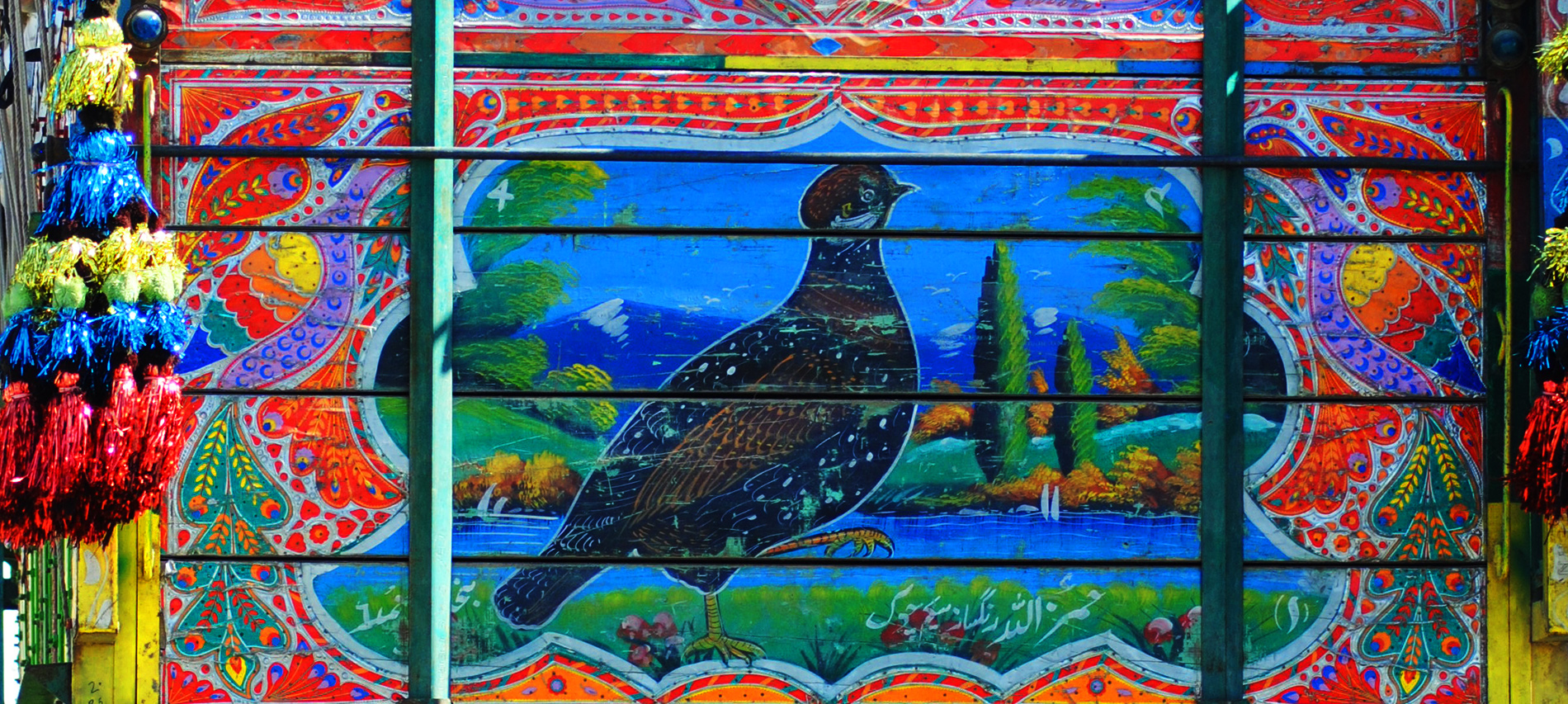Twelve stories of ordinary women who achieved extraordinary things out of sheer will and determination come together in Rinku Paul and Puja Singhal’s ‘Millionaire Housewives’, to inspire readers to achieve anything one wants to.
One such story is that of the well-known make-up artist Ambika Pillai. There is a monumental struggle that went behind the glitter and glamour of her life that we see today. Displaying unbridled courage when the going got tough, the story of Pillai is one to stay with us forever.
Here is an excerpt of her story from the book, ‘Millionaire Housewives’:
At the tender age of seventeen, my life took a decisive turn when a prospective groom came to see me. I didn’t even know his name. The one thing about him that impressed me though was his impeccable English. He had an MBA degree, was a gold medallist no less, and I gave up my world without any reservations to follow him to his. The excitement didn’t last long though. Despite his seemingly bright prospects, the reality check arrived as soon as I moved in with him to a tiny single-room apartment in Calcutta, a far cry from my sprawling home in Kerala. I was expected to wear a saree, be up at 5 a.m., cook, clean—things that I had never done before. I didn’t protest, refusing to let any of this affect me since I wanted to make my marriage work. I began to take many other things in my stride; being made to feel that I was not good enough on account of my lack of education was only one of them. I would have lived with all of this, but ours really wasn’t a marriage at all.
Not once in five years did we have a physical relationship. It was hard to explain this to my parents, who were convinced that my inability to bear a child meant there was something medically wrong with me. Trips to doctors, medical tests and even surgeries were my lot as I found it very hard to tell my parents the real issue with my marriage. I had to literally beg my husband to have a child and, thankfully, my daughter, Kavitha, was born after five years of marriage. If I had thought that a child would improve matters, I was living in a fool’s paradise as things started going from bad to worse.
Finally, with a two-year-old child in tow, I mustered up the courage to walk out of my seven-year-old marriage. I went back to my parents’ place. In retrospect, those seven years were one of the scariest times of my life. Kids should not get married as young as I did; at that age, you don’t even know your own mind, forget the other person’s. From wanting to be a happy housewife to coming back to my parental home in the throes of depression, I had come a long way. I had spent the last seven years of my life in a loveless relationship and had absolutely nothing to fall back on. If there was one thing I was grateful for, it was Kavitha. In fact, till this day, if anyone asks me if I regret my marriage, my answer is a vehement no, only on account of my daughter.
I just had no idea what I would do next. In my seven years of marriage, I hadn’t acquired any skills that could stand me in good stead. While my parents were supportive, my dad’s suggestion of letting him ‘look after’ my child and me financially didn’t go down well with me. With my other sisters married by then, I remember asking my father if I could help him with his cashew business—wanting to become the son he had never had. His answer, however, was a resounding ‘no’ as he felt it wasn’t a woman’s job. He couldn’t picture his daughter socializing with his many customers—a part and parcel of his cashew export business.
Never in my life had I felt like such a total loser. I wanted to stand on my own feet, but in the absence of any skills, I saw all doors closing in on me. In my desperation, I even came up with naive options like selling T-shirts on the beaches of Goa, where my lack of education would not be a deterrent. It was on one such day, when I was feeling totally dejected, that I saw an advertisement by Shahnaz Hussain in the local newspaper, inviting students for a hairstyling course in New Delhi. I made up my mind to join it. More than anything else, my decision was based on the fact that being a beautician didn’t require me to be a graduate. My father, of course, was devastated by the idea of me stepping out of the home turf. My mom tried to buy peace by explaining to my dad that at least I was choosing a ‘woman-oriented’ career and that I would be back home after finishing my course.
I landed in Delhi, a totally unknown city, with my daughter in my arms, utterly terrified of what the future held. I had never lived all by myself before or taken any independent decisions. Yet, here I was, fending for myself, looking for accommodations to rent. The problem was further compounded by the fact that I didn’t speak any Hindi. Irrespective of the many problems staring me in my face, I knew that there was no turning back now. I had to do this—more for my daughter than anyone else. While Delhi now feels like home, in those days I was a rank outsider. I remember people calling me ‘kali kaluti (dark complexioned)’. Of course, the saving grace was that since I didn’t know the language, I couldn’t quite understand what it meant. I somehow held on, and managed to finish two beauty courses.
Upon finishing my courses, although my parents were keen that I return home, I took up a job at a small two-seater parlour, which paid me Rs 2000 per month. I paid Rs 1000 as house rent and tried to stretch the balance to take care of my child. Money was something I never had to worry about in the past and these were trying times to say the least. While my father had paid for my courses, I was now determined to seek minimal financial help from him. I remember trying to save money from the measly Rs 1000 I had left after paying rent in order to buy a moped bike that would make commuting easier. Today, if one of my staff members tells me that they want to leave because they have a better offer, I never hold them back for I have witnessed the struggle for money first-hand.
The one bright spot of my life throughout this period remained my daughter, who was three years old by then and had just about started school. I remember telling Kavi stories of my own childhood—how I visited Disneyland when I was thirteen years old and how I would ensure that she did the same, although I had no clue how I would fulfil this promise.
Grab your copy of ‘Millionaire Housewives’ now!

Tag: women authors
6 Times Sister Nivedita had to Struggle Between her Heart and Mind
Margaret Noble arrived at India’s shores in the late nineteenth century, took the vows of a brahmacharini and devoted the rest of her life to the cause of India. She was enchanted by Swami Vivekananda but their vows of celibacy kept her from expressing her feelings for him. Regardless, she went on to worship him, making her heart and mind work in tandem.
Here are six times Sister Nivedita faced a struggle between her heart and mind.
Nivedita was filled with an overwhelming sense of devotion and love for Swami Vivekananda

Nivedita’s love for her King, astonished many

For Sister Nivedita, Swami Vivekananda’s visit to London was a divine intervention

For Sister Nivedita, being close to her King was all that mattered

She felt guilty for ignoring her family but she couldn’t help it

Going against her impulsive nature, Sister Nivedita vowed to practice the wisdom of restraint as advised by her dear Guru

Tell us which aspect of Nivedita’s love for her King astonished you the most.

6 Things You Probably Didn’t Know About Pakistan
Meena Menon was The Hindu’s correspondent in Islamabad September 2013 to May 2014. During her time in the neighbouring country, despite the restrictions placed on her movements, Menon managed to write on a range of subjects covering swathes of life in Pakistan. Her book, Reporting Pakistan is a nuanced and wide-ranging account of a difficult yet exciting assignment which uncovers some of the hidden yet marvelous facets of the fabled “enemy”.
Here are six things you probably didn’t know about Pakistan:
Contrary to popular opinion, people in Pakistan are very welcoming of Indians

The salesman, according to Menon, was very solicitous and promised to record any film she wanted which he didn’t have on his list.
After her deployment, one of the first assignments undertaken by Meena Menon was interviewing a journalist named Ali Chishti. Chishti, a journalist with Friday Times, was forced to leave his home in Karachi.

Chishti was kidnapped and tormented for his writings on national and security issues along with the Muttahida Qaumi Movement (MQM).
Although majority of the population in Pakistan is Muslim, there are many other communities that live in the country, making it an extremely diverse society. During her time, Menon spoke to the members of the persecuted Ahmadi community. Constitutionally, the Ahmadis or Ahmadiyya or Qadianis had no right to be called Muslims. They could do nothing other Muslims could. They were heretics, according to the law, and could pray only in ‘a place of worship’ which could not be called a mosque.

In the same interview, X added, religious persecution started with the Ahmadis and when that was successful, with the government doing all it could to declare them non-Muslims, other communities were targeted, like the Hindus, Christians and Sikhs.
Rimsha Masih, a mentally challenged teenager, was accused of burning pages of Quran.

Though she was acquitted in November 2012 of all charges after it was found that the cleric who filed the case against her had planted evidence, the residents of her former neighbourhood were terrorized and forced to leave. That isolated tent camp in many ways, according to Menon spoke of hate and discrimination.
Mohammad Ali Asghar, a resident of Edinburgh, was accused of printing visiting cards in the name of Prophet Mohammad.

Menon however, found out that the real story was different. Asghar, who came to Rawalpindi in 2010, was shocked to find one of the two properties he owned there occupied by a notorious land grabber. He filed a complaint against him before leaving for the Haj pilgrimage, but it was Asghar who was arrested on his return. Predictably, all the evidence, including the letters, was handed over to the police by the complainant, who had many anti-corruption cases against him.
A gardener in Islamabad is the VIP of the city

Meena Menon, while staying in Islamabad, also observed that her neighbours obsessively cut and pruned their hedges to resemble flowers or animals—topiary.
Tell us which side of Pakistan astonished you the most?

6 Wonderful Books You Should Gift the Women in Your Life
“Books make great gifts because they have whole worlds inside of them,” Neil Gaiman once remarked. This Women’s Day, do you want to gift her an inspirational world of stories? Worry no more as we have got you covered.
Here are six contemporary books that the women in your life will absolutely love to have!
This Wide Night
If you want to honour the women in your life who rose above unfavourable circumstances and came out on top, then this book is for you!
In this evocative and gripping novel, Sarvat Hasin depicts four beautiful sisters and their unconventional mother, living alone and together in a deeply patriarchal world. The Maliks, as they are called, live a life of relative freedom in 1970s Karachi. It is hard to break into their circle as they have forged the rules of their own universe. In a quietly seething world of This Wide Night, the unconventionality of these women collides with the dogmatism of the society around them.

Me and Ma
A moving memoir from one of the most talented artists of our time, Divya Dutta celebrates her mother’s struggles to turn her into the woman she is today. Capturing the beauty of a mother-child relationship, Divya Dutta walks us through the most intimate memories of her life. The incredible bond she forged with her mother helped her through tragedies and difficulties, and led her to become an award-winning actor of stature.
Me and Ma is one of the most beautiful tributes that you can give your mother!

The Spy
Is there a woman in your life who defied conventions? An epitome of fierce independence? If yes, then this enthralling tale of Mata Hari by Paulo Coehlo is one of the most perfect gifts for her!
Arriving penniless in Paris, Mata Hari swiftly became the most celebrated woman in the city at the back of her delightful dancing and showmanship. She led a liberated life and courted some of the most powerful men of her time. Not before paranoia consumed a country at war and the powers-that-be clanked down upon her, suspicious of her lifestyle that led them to believe she was a spy.

Devi, Diva or She-Devil
Do you know a woman who combines her personal and professional responsibilities with masterful ease? Then Sudha Menon’s take on smart career women would prove to be an enchanting tribute!
The book explores a myriad of complex issues faced by Indian women at the workplace, such as dealing with family pressures, gender perceptions, the glass ceiling, leadership challenges and bringing up children while also excelling in their careers.

Mr and Mrs Jinnah
Sheela Reddy’s fascinating account of a marriage that shook India, that of Mohammad Ali Jinnah and Ruttie Petit’s, brings to the fore an unlikely and unforgettable love story.
It was her intelligence and the fact that Ruttie was so widely read that attracted Jinnah. Apart from her beauty, Ruttie’s fierce commitment to the nationalist struggle struck a chord with him. She came across as a young independent woman who saw above the trivialities of the day.
This lucid account of an unlikely union that took the society of the day by storm is a must-give to the women in your life who share Ruttie’s exuberance and intelligence.
 The Girl Who Chose
The Girl Who Chose
Over the centuries, hundreds have retold the Ramayana, one of the two great epics from ancient India. They added new twists and turns but few have noticed that the tale always depends on the five choices made by Sita. In this charmingly illustrated retelling of the epic, Devdutt Pattanaik brings to the fore the often overlooked story of Sita.
As an epitome of freedom, Sita, the girl who chose, stands tall as a woman who decided not be bound by rules. Gift this book to one of the women in your life and let her know your admiration for her independence!

We hope that the list above solved your worries and provided you with wonderful options for that perfect gift – ones that the women in your life truly deserve!
5 Gems from the Quran that you MUST read!
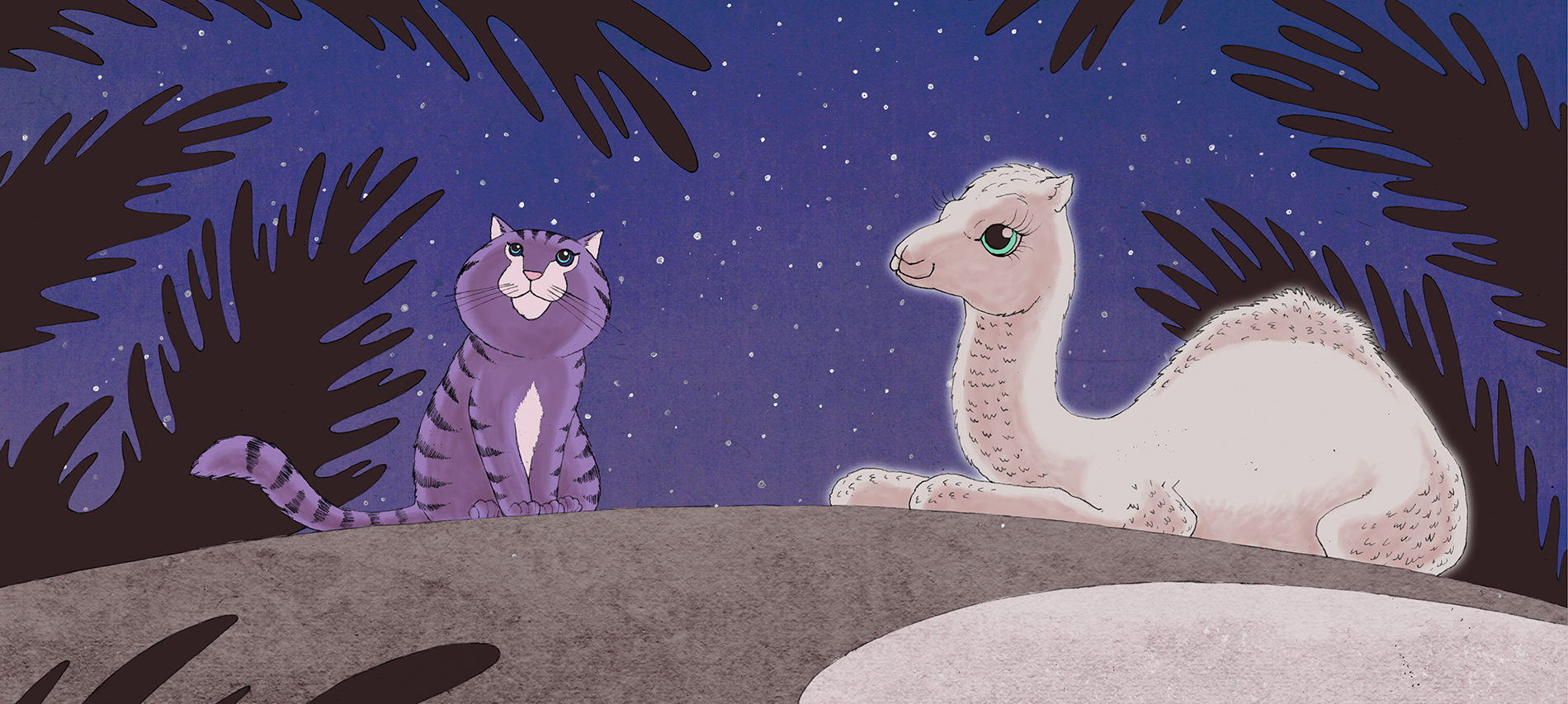
Bestselling author Anita Nair is out with her new book – the first ever collection of stories from the Quran. It features endearing characters like Muezza, the prophet’s favourite cat and Baby Jaan, a djinn in the form of a baby camel. The book has gorgeous artwork which makes it a must to show off on your shelves.
Our interest was captured from the beginning where a friendship is struck as Baby Jaan listens to Muezza’s mesmerizing tales. We couldn’t keep the enlightening nuggets of the Islamic lore all to ourselves so here are a few gems to take you through the coming week.
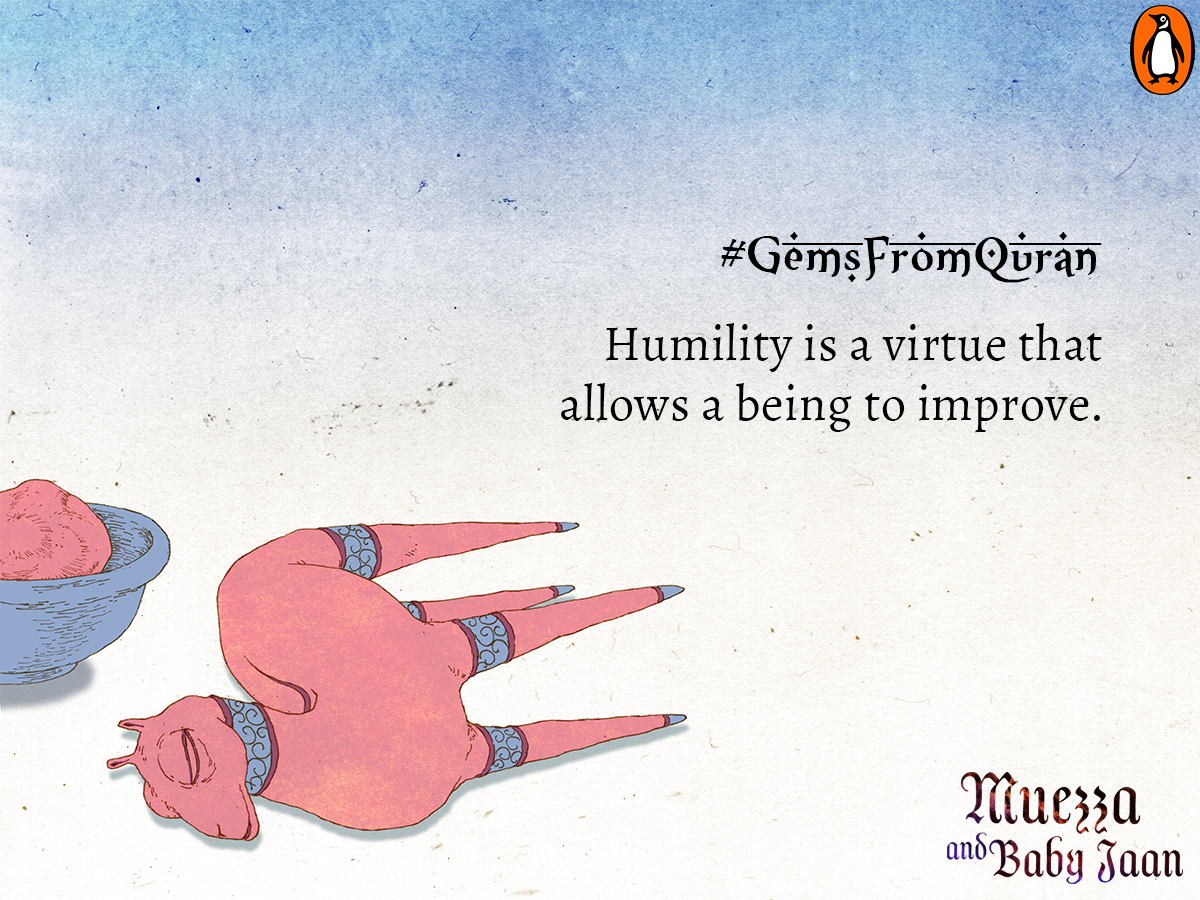
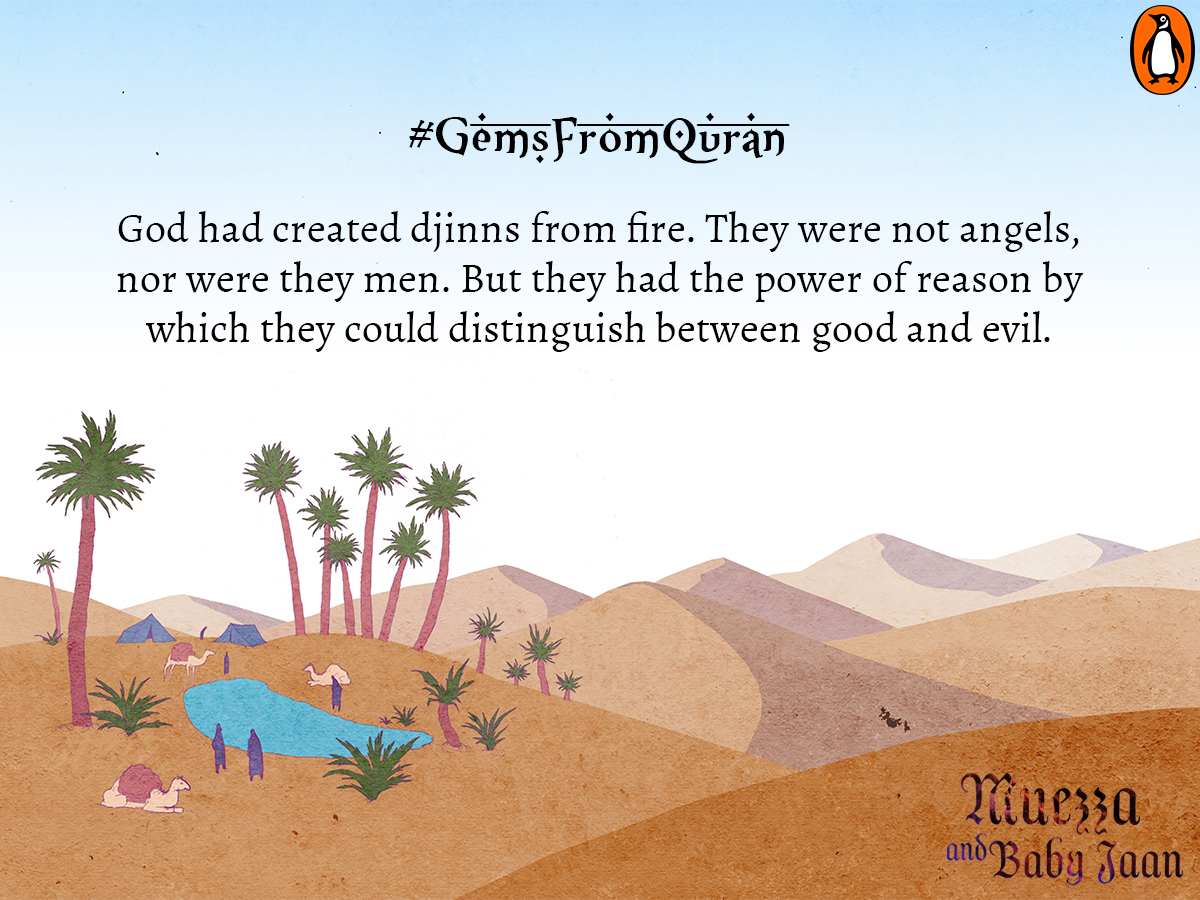
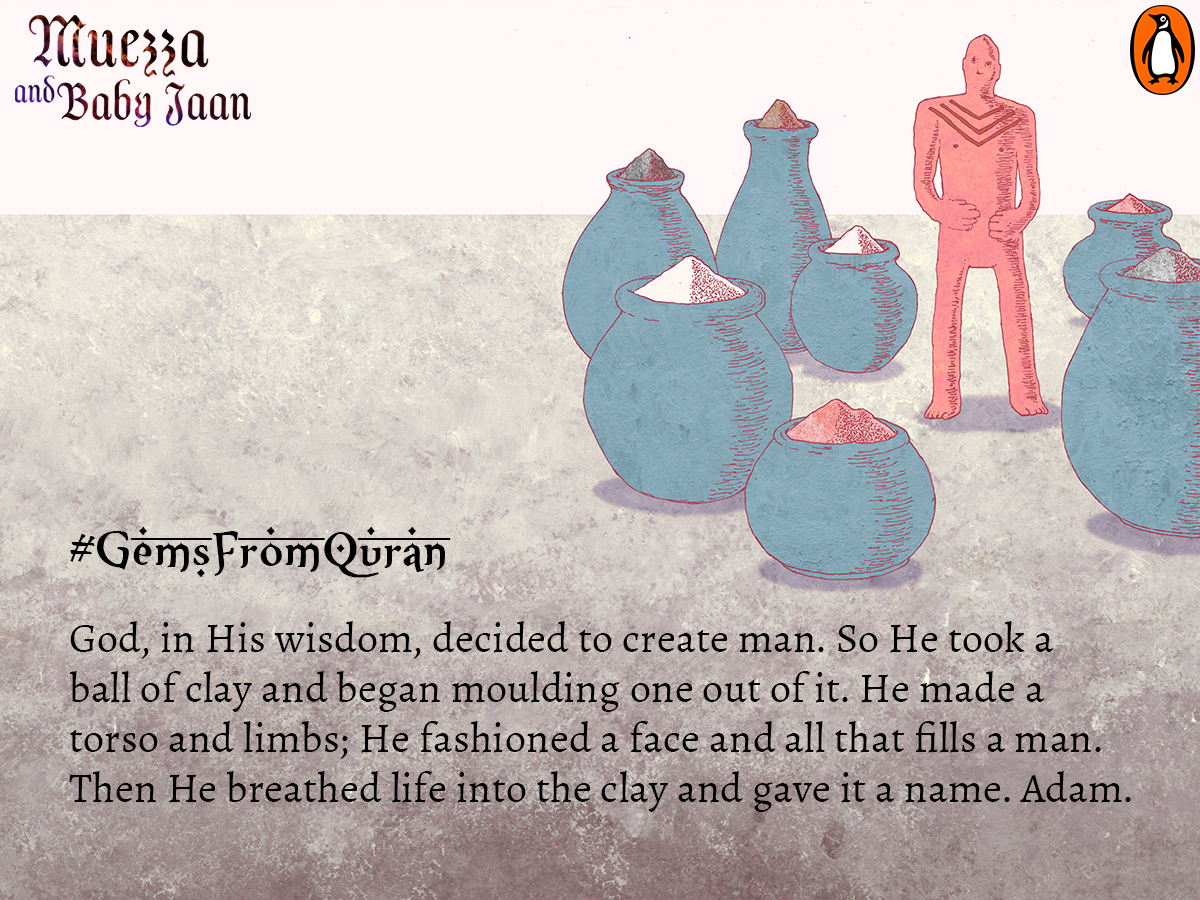
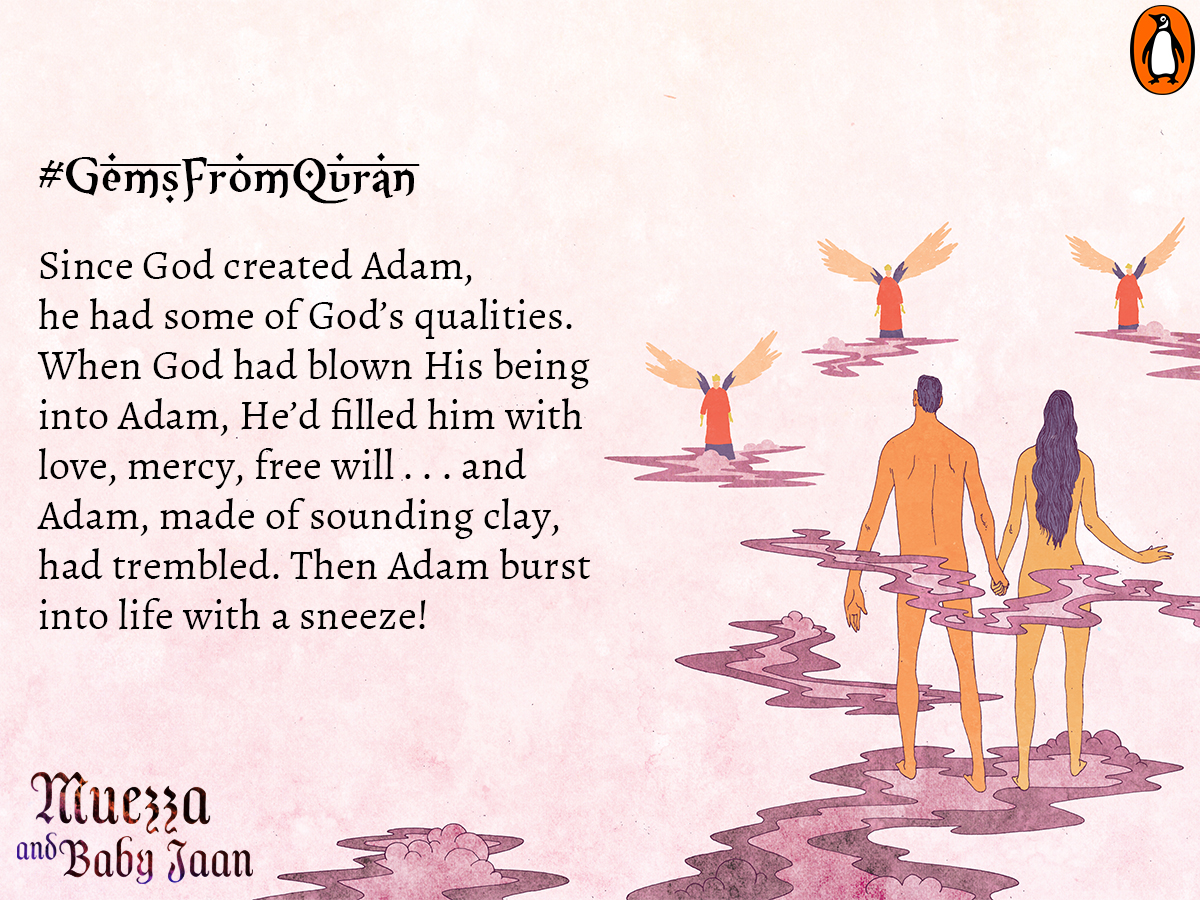
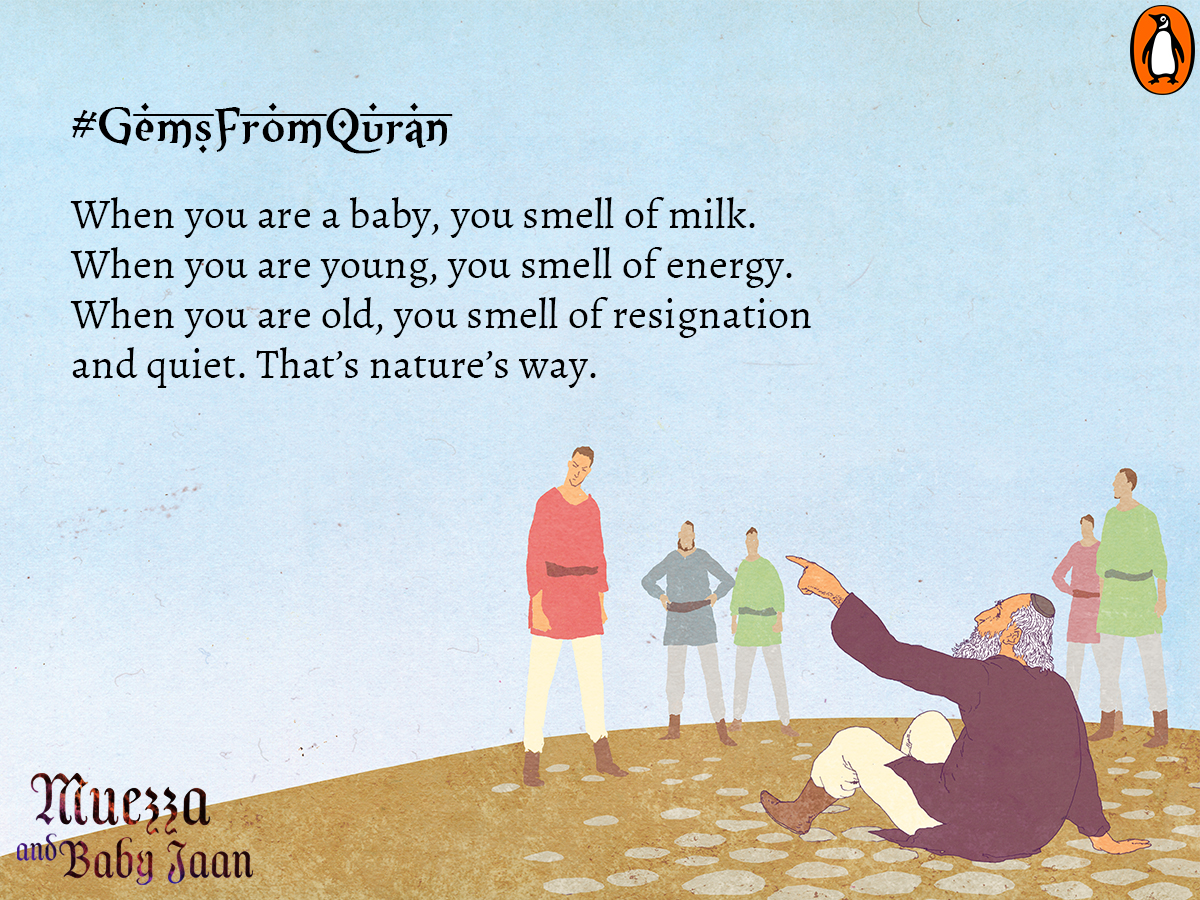
Has it grabbed your attention yet? Look no further, get your copy of this beautiful book here: http://bit.ly/GetMuezza
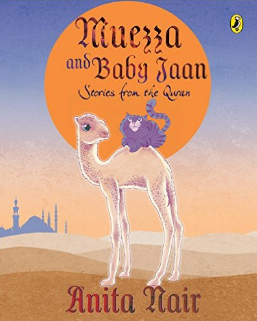
Anita Nair is a widely acclaimed novelist and the recipient of the Kerala Sahitya Akademi Award, 2012. Muezza and Baby Jaan is her latest book.








